Iran’s Hard Revenge for General Soleimani: Beware the Fury of a Patient Man
Following the assassination of General Qassem Soleimani, the Iranian nation passionately pleaded Iran’s military to take revenge from the criminal clique in the White House, who committed that heinous atrocity. Donald Trump’s derogatory comments against the Iranians and their immortal hero, Haj Qassem Soleimani, further inflamed the Iranian public sentiments. Talks over a “hard revenge” were ubiquitous in the Iranian society, and no one in Iran could ignore Trump’s outrageous crime against the only man who defeated ISIS.
I) U.S. Army gets the first slap in the face
Few days after the callous assassination of Gen. Soleimani, the Aerospace Force of the Islamic Revolutionary Guard Corps (IRGC) targeted the United States troops at the Ain al-Assad base in western Iraq. In this successful attack, IRGC pounded the American targets with Qiyam and Fateh-313 ballistic missiles. The American anti-missile systems could not intercept or destroy any Iranian missiles, resulting in dozens of massive explosions in the American base.
The Ain al-Assad military base is deemed to be the largest American military base in Iraq, a significant part of which is run by the U.S. troops. The centre for monitoring, logistical support, commanding, and even devising political strategies for the U.S. military in Iraq, Ain al-Assad is of high importance in keeping an eye on the Iranian-backed Popular Mobilization Forces (PMF) in the Al-Anbar desert. Furthermore, the base would facilitate any potential airstrikes by Washington or the Zionist regime, targeting the newly liberated Al-Qa’im-Bukmal corridor.
IRGC’s brave missile attack on the Ain al-Assad airbase, regardless of its military implications, had conveyed strong political messages to the Americans.
Within the perplexing equations of international politics, to exhibit the will and determination to defy a superpower, (e.g., the United States), has broader political repercussions than actually engaging in a full-scale military confrontation in the field. Amid widespread speculations that Iran had ended its retribution against the Americans; in the following day of the IRGC’s strikes, the Iranian Supreme Leader Ayatollah Khamenei said: “…Yesterday’s attack was not enough as we just only slapped them in the face,” adding that what is crucial is that the corrupt presence of the U.S. in this region should come to an end.
II) The geopolitical revenge
Given the fact that no top American military or political official can match with a man of such consummate value as General Soleimani; the issue of exacting revenge upon White House terrorists who martyred Haj Qassem, cannot be seen unless through an international point of view. Haj Qassem was an admired and much-loved commander in the Middle-East region for nearly two decades through commanding the IRGC’s Quds Force. Therefore, realizing Gen. Soleimani’s colossal character, the Iranian retaliation certainly cannot be limited to any number of American personalities or any number of American military bases. Hence, it seems that Iran reserves for itself the right to implement retaliatory attacks against the American interests in all parts of the world and at any time.
In short, the IRGC missile strike against Ain Al-Assad was not intended to inflict a “hard revenge” at all, rather Tehran’s real act of revenge shall lead to a victory with strategic outcomes:
The ultimate American withdrawal from the Middle-East region, once and for all.
“Oft have I heard that grief softens the mind,
And makes it fearful and degenerate;
Think therefore on revenge and cease to weep.”
― William Shakespeare
0
Following the assassination of General Qassem Soleimani, the Iranian nation passionately pleaded Iran’s military to take revenge from the criminal clique in the White House, who committed that heinous atrocity. Donald Trump’s derogatory comments against the Iranians and their immortal hero, Haj Qassem Soleimani, further inflamed the Iranian public sentiments. Talks over a “hard revenge” were ubiquitous in the Iranian society, and no one in Iran could ignore Trump’s outrageous crime against the only man who defeated ISIS.
I) U.S. Army gets the first slap in the face
Few days after the callous assassination of Gen. Soleimani, the Aerospace Force of the Islamic Revolutionary Guard Corps (IRGC) targeted the United States troops at the Ain al-Assad base in western Iraq. In this successful attack, IRGC pounded the American targets with Qiyam and Fateh-313 ballistic missiles. The American anti-missile systems could not intercept or destroy any Iranian missiles, resulting in dozens of massive explosions in the American base.
The Ain al-Assad military base is deemed to be the largest American military base in Iraq, a significant part of which is run by the U.S. troops. The centre for monitoring, logistical support, commanding, and even devising political strategies for the U.S. military in Iraq, Ain al-Assad is of high importance in keeping an eye on the Iranian-backed Popular Mobilization Forces (PMF) in the Al-Anbar desert. Furthermore, the base would facilitate any potential airstrikes by Washington or the Zionist regime, targeting the newly liberated Al-Qa’im-Bukmal corridor.
IRGC’s brave missile attack on the Ain al-Assad airbase, regardless of its military implications, had conveyed strong political messages to the Americans.
Within the perplexing equations of international politics, to exhibit the will and determination to defy a superpower, (e.g., the United States), has broader political repercussions than actually engaging in a full-scale military confrontation in the field. Amid widespread speculations that Iran had ended its retribution against the Americans; in the following day of the IRGC’s strikes, the Iranian Supreme Leader Ayatollah Khamenei said: “…Yesterday’s attack was not enough as we just only slapped them in the face,” adding that what is crucial is that the corrupt presence of the U.S. in this region should come to an end.
II) The geopolitical revenge
Given the fact that no top American military or political official can match with a man of such consummate value as General Soleimani; the issue of exacting revenge upon White House terrorists who martyred Haj Qassem, cannot be seen unless through an international point of view. Haj Qassem was an admired and much-loved commander in the Middle-East region for nearly two decades through commanding the IRGC’s Quds Force. Therefore, realizing Gen. Soleimani’s colossal character, the Iranian retaliation certainly cannot be limited to any number of American personalities or any number of American military bases. Hence, it seems that Iran reserves for itself the right to implement retaliatory attacks against the American interests in all parts of the world and at any time.
In short, the IRGC missile strike against Ain Al-Assad was not intended to inflict a “hard revenge” at all, rather Tehran’s real act of revenge shall lead to a victory with strategic outcomes:
The ultimate American withdrawal from the Middle-East region, once and for all.
“Oft have I heard that grief softens the mind,
And makes it fearful and degenerate;
Think therefore on revenge and cease to weep.”
― William Shakespeare
0
Abu Mahdi al-Mohandes
Abu Mahdi al-Mohandis
Abu Mahdi al-Muhandis
against
Ain Al-Assad
America
American
Americans
assassination
Ayatollah Khamenei
Crimes
Donald J. Trump
Donald Trump
Gen. Soleimani
general soleimani
General Soleimany
qasem soleimani
Haj Qasem soleimani
Hard revenge
hard revengre
Imam Khamenei
IRAN
iranian
Iranian embassy
Iraq
Iraqi
Iraqi people
Khamenei
Martyr Soleimani
poster soleimani
Qasem Soleimani
Qassem soleimani
Revolutionary
severe revenge
Soleimani
Soleymani
trump
US
USA

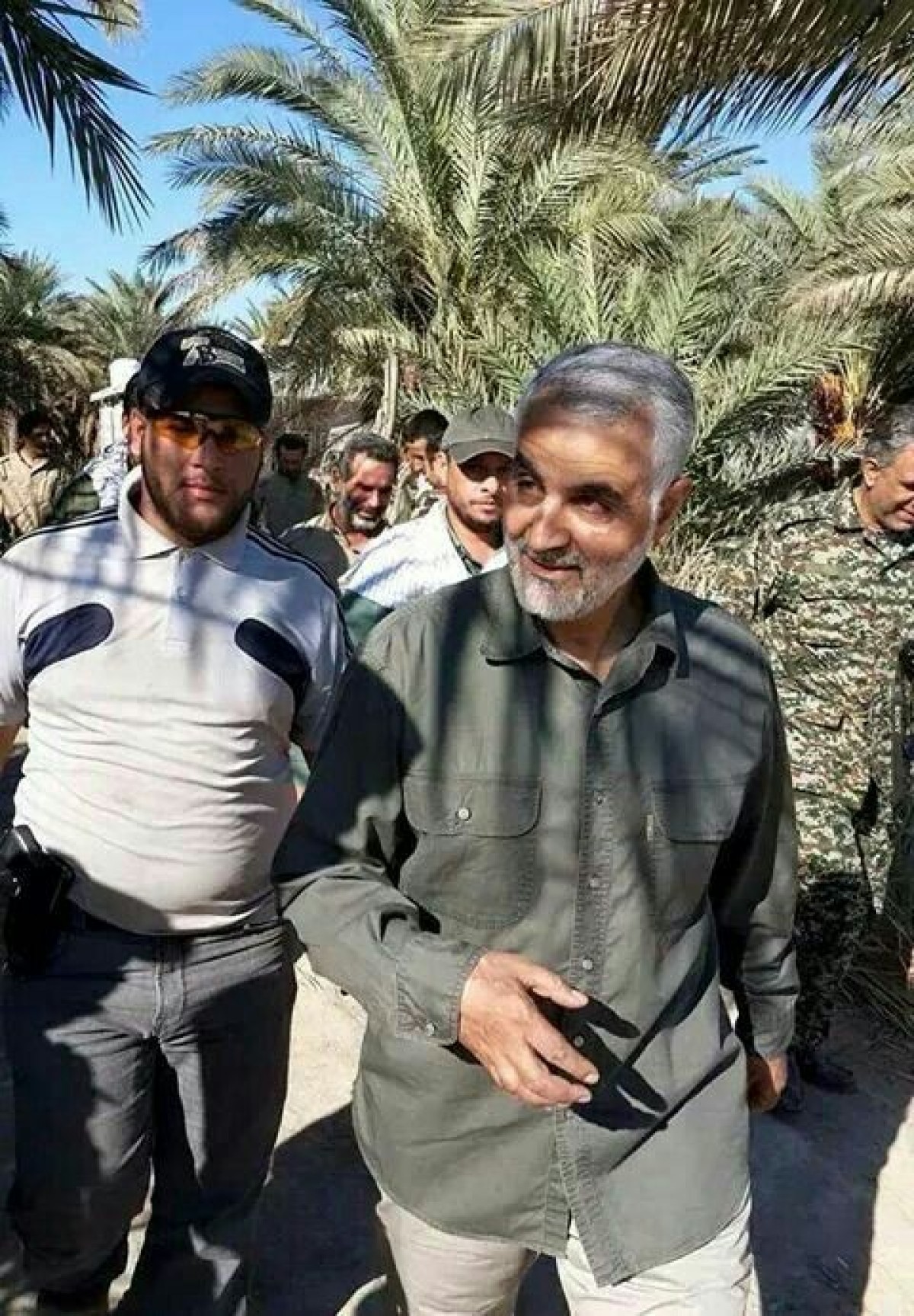
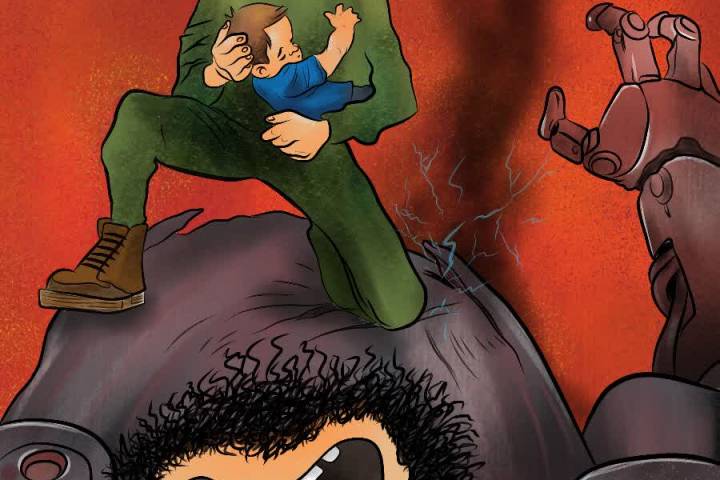
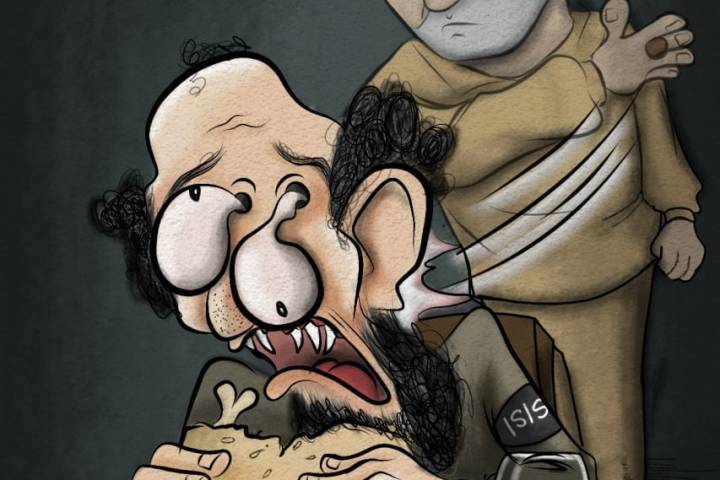
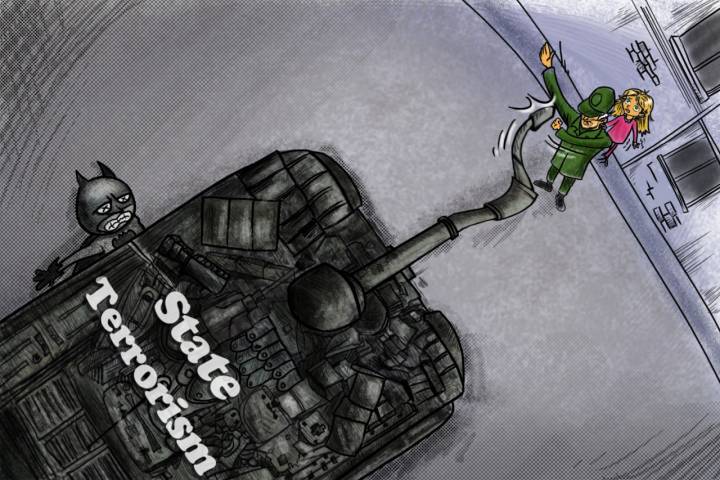
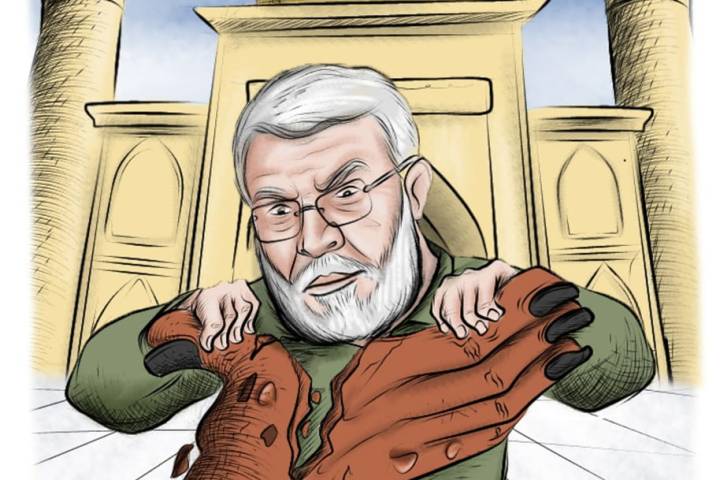
Comment
Post a comment for this article